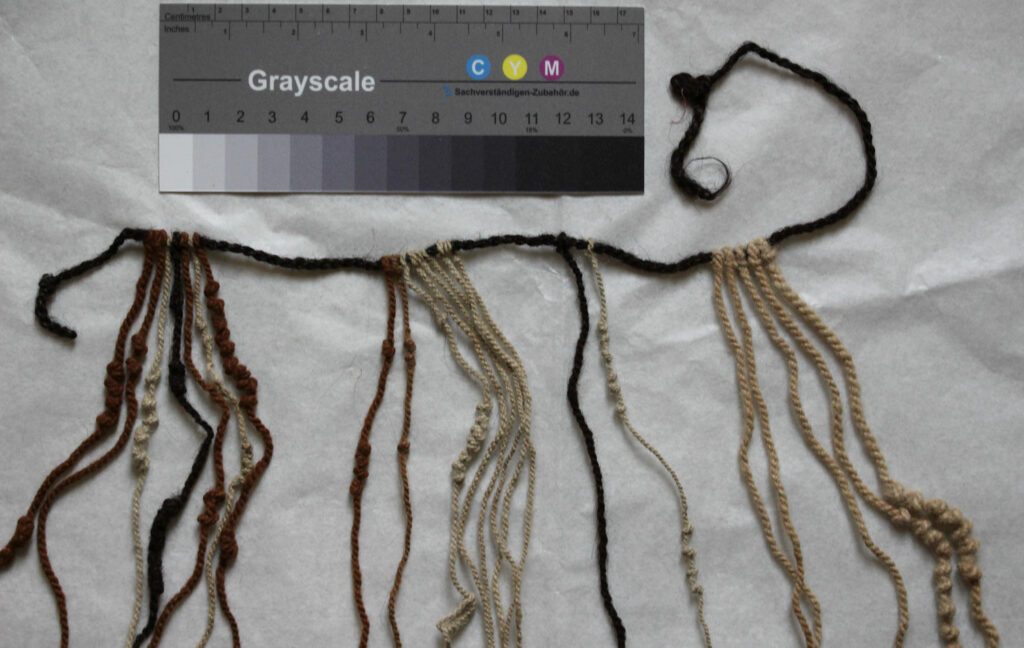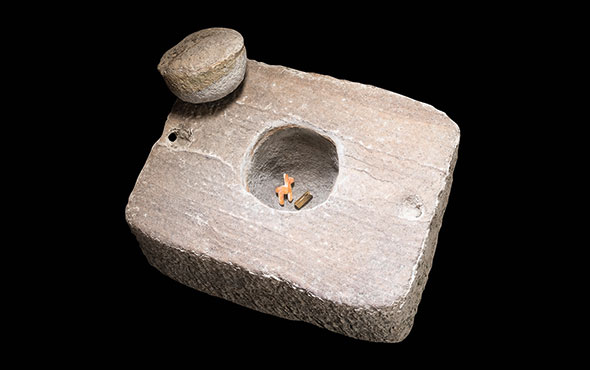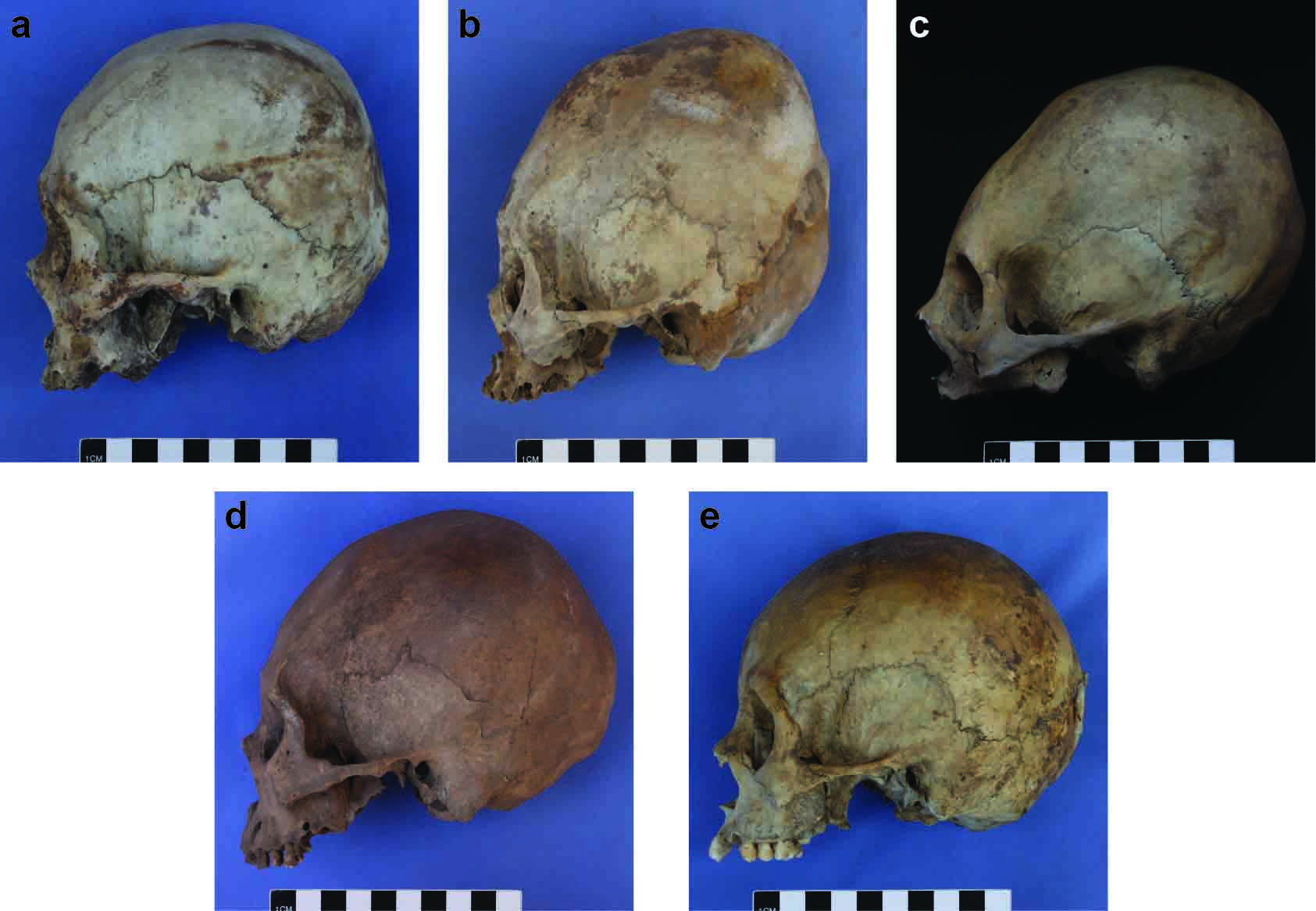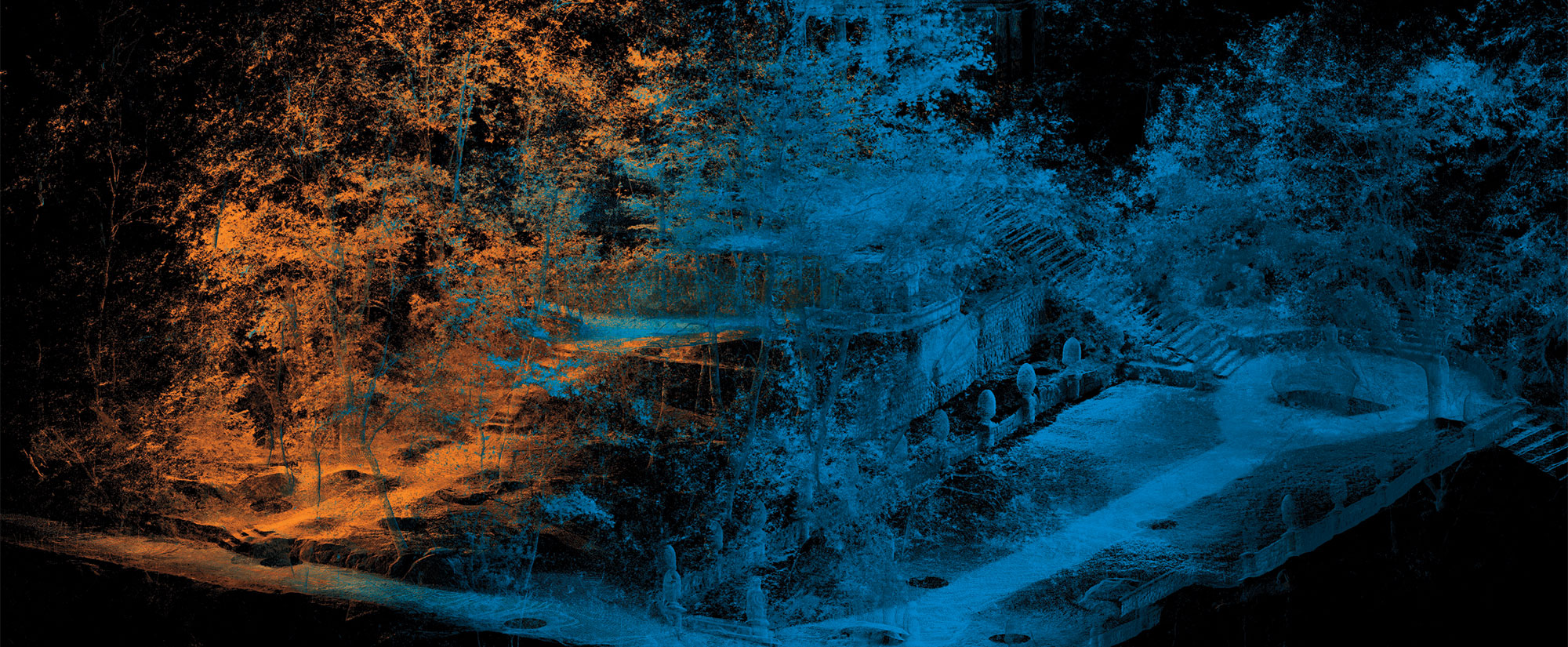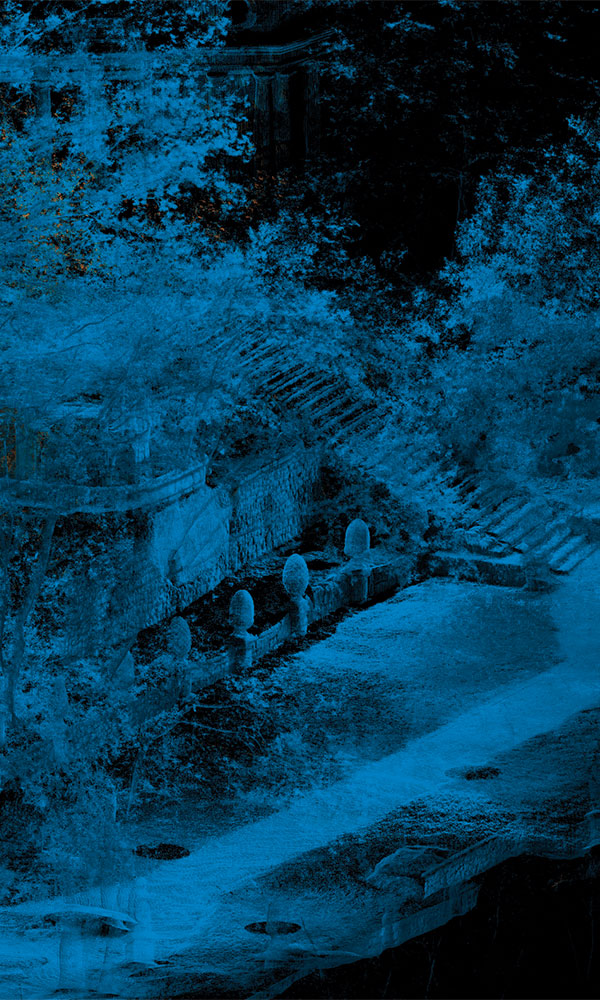ST. ANDREWS, SCOTLAND—Science reports that recent analysis of an Inca recordkeeping device in the collection of the University of St. Andrews is upending what archaeologists previously thought about the pre-Columbian South American civilization. Hundreds of years ago, the Incas developed a unique system, using knotted cords known as khipus to record information such as dates, numbers, and transactions. These were typically made from long strands of llama or alpaca hair. It had been thought that the job of creating and maintaining these complicated tools was held by highly educated and elite administrative men who were among Inca society’s upper echelon. A new study of the St. Andrews khipu, which was made somewhere in the Andes region around 1498, surprisingly indicated that it was woven from the hair of a woman, who researchers believe made the object herself. Additionally, using isotopic analysis of a hair sample, the team was able to extract information about the woman’s diet. She ate very little meat or maize, foods usually eaten by the Inca upper classes. Instead she consumed tubers, quinoa, and leafy greens, the usual fare of common people. This new research seems to suggest that numerical literacy and khipu production was more widespread in Inca society than originally believed. Read the original scholarly article about this research in Science Advances. For more on khipus, go to "Reading an Inca Archive."
